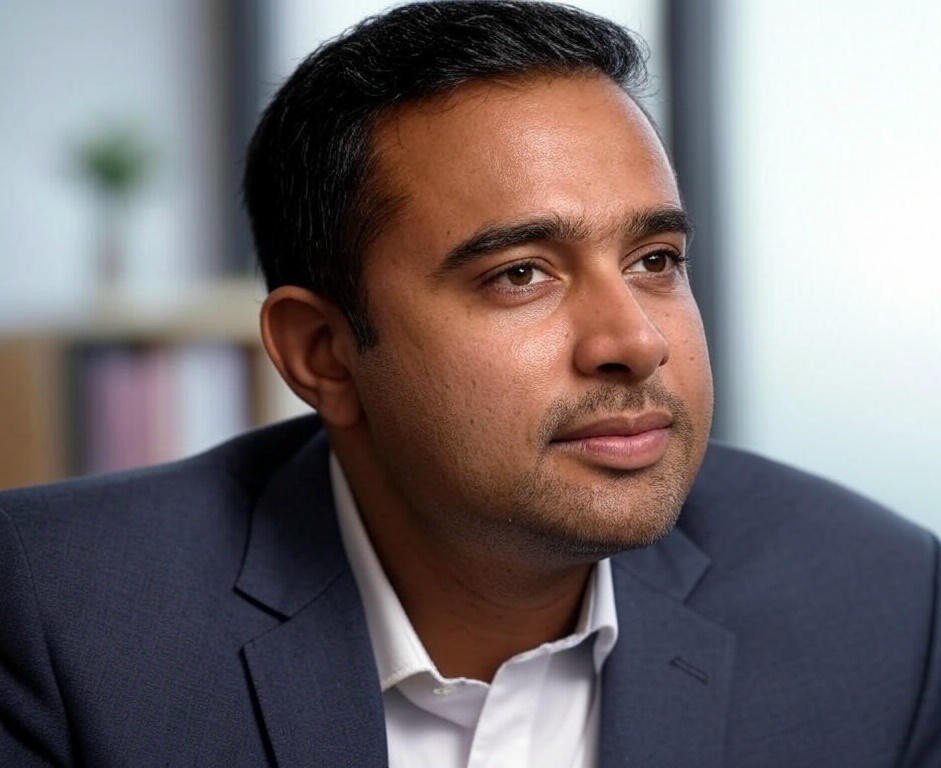Welcome to a tale as old as time – or at least as old as the internet boom. This is the story of Byju’s, a company that promised to revolutionize learning. What began as a whisper of innovation has become a roar of controversy, with allegations that Byju’s isn’t just pushing the envelope – it’s making a scam.
The buzz around Byju’s scam has grown so loud that it’s practically a schoolyard chant. People whisper about how Byju’s allegedly kills the youth’s love for learning with their flashy ads and too-good-to-be-true promises.
It’s uncommon for an Edtech company to be questioned for potentially changing the rules. Byju’s, a top player in India’s online learning market, has been accused of attracting students and parents with a flashy promise.
Byju’s Educational Apps has faced criticism for telling stories that make many people feel taken advantage of and tricked.
But what is the real impact of this supposed revolution? Is Byju’s a ray of hope for students around the world, or is he a case study in how not to build an edtech empire? This blog post lifts the curtain on Byju’s glamour and reveals what lies behind it.
We’re delving into the controversial depths of Byju’s business practices that might make you think twice before clicking the “download” button on Byju’s app.
And we’re not just scratching the surface; We’re talking about the inside story and a complete, no-holds-barred look at the downfall of a company that was probably playing hide-and-seek with the truth.
But before we spread the educational word, let’s set the stage. Byju’s, founded by the charismatic Byju Raveendran, has been the poster child for success in the Indian Edtech landscape.
From its inception, Byju’s has been a powerhouse of innovation and online learning, with a business model that appears to have cracked the code of making studying not only tasty but desirable.
Through the lens of Byju’s app, formulas, and historical dates came alive, dancing on the screen and planting themselves in the minds of eager learners.
It was a heady mix of technology and education mixed with the glitz and glamor of Bollywood – but was it all just smoke and mirrors?
In this article, we’re peeling back the layers of Byju’s onion, and fair warning, it might make you cry. We’ll trace the company’s rise to the top, the strategies that may have thrown it off the ethical map, and the consequences that are making headlines.
From search results of gleaming Byju’s classes near me to heartbreaking stories of cash-strapped families, we’re covering it all. Grab your magnifying glasses, friends – it’s time to check whether Byju’s is the innovation hero it claims to be or an Edtech villain in disguise.[/vc_column_text][vc_gap height=”20″][vc_video link=”https://youtu.be/Mqhz0PhV47c” align=”center” title=”YouTube”][/vc_column][/vc_row][vc_row][vc_column][vc_fl_title title_style_text=”title-three” fl_style_title_preview=”title-three” title_text_align=”text-center” animation=”none”]
The Rise of Byju’s as an Edtech Company
Once upon a time, as recently as the last decade, a beacon of innovation appeared on the edtech horizon. This was none other than Byju’s, a company that donned the mantle of reimagining the educational landscape.
With its sleek interface and the charm of technology, Byju’s set sail to conquer the ocean of online learning. Their mantra was simple: make learning fun, accessible, and effective. But was this mantra more than just a catchy tune?
The rise of Byju’s didn’t just happen overnight. It was an orchestra of marketing tactics and false promises that played a symphony sweet enough to lure countless students and their parents into investing their time and money into the platform.
They promised a future where books were allies, not enemies, and learning was a journey, not a chore. Yet much like a mirage in a desert, the reality may not be as lush as it appears.
Let’s dive into how Byjus leveraged the ever-increasing demand for online education. As the world turned digital, Byju’s capitalized on the trend, riding the wave of virtual learning to the shore of success.
They weren’t alone in this journey—figures such as Anuradha Tiwari and competitors like Vedantu also joined the fray, further stirring the pot of Edtech controversies.
- Their business model was brilliant, if not a bit too glittering; offering a wide array of courses tailored to students from all walks of academic life, from the tiny tots tracing letters to the aspiring IAS officers poring over policy.
- Tapping into parents’ anxieties about their child’s success, Byju’s painted a picture of a world where their app could unlock potential with the mere swipe of a finger.
- Financially, they hit all the high notes, scaling the scales of a billion-dollar valuation, with investments pouring in from awe-struck investors.
Byju Raveendran, along with Divya Gokulnath, founded Byju’s, initially named “Think and Learn,” in 2011. Their vision materialized with the launch of Byju’s learning app in August 2015, which quickly became a significant player in the educational technology landscape.
In the early days, Byju’s focused on creating video-based learning programs for K-12 students and competitive exams. This approach helped them cater to a wide demographic, offering a range of educational services, including virtual reality, artificial intelligence, and educational gaming.
The app’s launch was met with tremendous success, attracting over 20 lakh children within just three months. This rapid adoption underscored the demand and potential impact of digital learning platforms.
Byju’s growth strategy included significant acquisitions such as Whitehat Jr., a coding platform for children, which was purchased for 300 million dollars. This acquisition, among others, played a crucial role in expanding Byju’s offerings and market presence.
The company’s aggressive expansion continued with the acquisition of multiple educational platforms like TutorVista, Osmo, and Aakash Institute, further broadening its product portfolio and geographic reach.
By April 2023, Byju’s claimed to have more than 150 million registered students, a testament to its global appeal and effectiveness.
Financially, Byju’s has been backed by substantial investments, securing nearly $785 million from prominent investors such as Sequoia Capital India and the Chan Zuckerberg Initiative. This funding has supported its innovative educational programs and global expansion plans.
Byju’s operates primarily on a premium subscription model, requiring payment for access to most of its content. This model has proven successful, with the company achieving unicorn status in 2018 and later reaching a valuation of $22 billion, identifying it as a unicorn in the tech industry.
The company’s workforce is another pillar of its success, employing over 10,000 people worldwide, including a dedicated team of more than 2,500 content creators and educational experts.
This team is pivotal in developing engaging and effective educational content that meets the diverse needs of students across various regions.
Throughout its journey, Byju’s has not only focused on business growth but also recognition in the educational sector, winning multiple awards such as the Asia Pacific Entrepreneurship Awards in 2018 and the CNBC-TV18 Indian Business Leader Awards in 2019.
These accolades reflect the company’s commitment to excellence and innovation in education.
This tale of growth isn’t just a narrative of numbers and dollar signs; it’s a testament to the influence of Byju Raveendran, the maestro behind the company. Under his baton, Byju’s orchestrated a symphony that played across classrooms and living rooms alike, embedding its name in the psyche of the education-seeking populace.
Yet, as we peek behind the curtain, we must ask ourselves: Is the crescendo of Byju’s rise to fame a melody for the masses, or a siren song leading to rocky shores? This tale of profit-driven growth and apparent success masks a potential underbelly of exploitation and deceptive practices.
But fear not, dear reader, as we embark on this journey of discovery, we shall scrutinize the fine print and discern the truth from the glossy misrepresentation of facts. So, buckle up—as we explore the ascent of Byju’s, remember to keep your eyes wide open and your wits about you.
The Dark Side of Byju’s: Exploiting the Youth
When the curtains are pulled back on the shimmering facade of Byju’s, an unsettling narrative unfolds—one where the specter of exploitation overshadows the pursuit of education.
This edtech juggernaut, once heralded as a harbinger of a learning revolution, stands accused of preying on the young minds it vowed to nurture.
Under the dazzling allure of high-tech learning, Byju’s has allegedly woven a web of misleading promises and manipulation, coaxing students and their guardians into parting with substantial sums of money.
The tales of woe echo through the experiences of disillusioned families, their educational aspirations entangled in the snare of Byju’s marketing tactics.
These are not just anecdotal whispers but rather a chorus of grievances that raise the question: Are we witnessing an Edtech scam in the making?
Consider the plight of those who were lured by the siren song of Byju’s promise to transform learning. Driven by a blend of fear and hope, parents have invested their hard-earned money into the Byju’s learning app, Byju’s online course and classes, and various other offerings that dot the digital landscape like stars in the night.
Yet, for some, these stars have fallen, plummeting into the abyss of student debt and dashed dreams.
- Countless stories from households detail how the company’s aggressive sales pitches led them to sign up for expensive courses, often under pressure and with the false assurance of easy cancellations and refunds.
- The increasing reports of students being ensnared in long-term contracts without a clear understanding of the financial commitment further stain Byju’s ethical fabric.
- Allegations of hiding the truth about the actual effectiveness of the courses have surfaced, casting long shadows on the brand’s credibility.
The impact of this purported deceit extends beyond individual families. The very fabric of our education system bears the brunt of these fraudulent practices.
By prioritizing profit over pedagogy, companies like Byju’s risk derailing the noble quest for knowledge, turning it into a transactional nightmare where the highest bidder gains the upper hand.
The irony is stark – a beacon of learning is now accused of destroying the essence of education it sought to uphold.
Furthermore, the negative impact on those who have been financially and emotionally drained is not just a matter of money lost but a breach of trust—a trust placed in the hands of an entity that promised to lead the way in innovative learning.
The voices of these individuals, many of whom have shared their grievances on various platforms, paint a picture of disillusionment and betrayal at the hands of Byju.
Let’s not mince words; the expectations of ethical conduct in the realm of education are not just high—they are paramount. As the world watches, the onus is on entities like Byju’s to uphold these standards, lest they tarnish the sanctity of this noble pursuit with the stain of greed.
In the theater of educational excellence, there should be no room for scams or manipulation, especially when the future of our youth is at stake.
Uncovering the Unethical Practices of Byju’s
The realm of edtech is buzzing with innovations and promises of a brighter future, but sometimes, beneath the sleek interface and catchy slogans, you may find a web of deceit.
In the case of Byju’s, what was once a beacon of educational advancement, appears to be a mirage, fueled by a cocktail of unethical practices. Let’s peel back the curtain and expose the actions that have tarnished the glittering image of this once-revered giant.
At the forefront of the controversy is the company’s tendency to engage in misleading advertising and make bold claims that often do not hold water. It’s like promising a spaceship and delivering a paper plane; the
disparity between expectation and reality has left many students and parents feeling cheated. Byju’s has built a kingdom on the sands of hollow promises, and now, the tide of public opinion is coming in.
The man behind the curtain, Byju Raveendran, the founder of Byju’s, has faced his share of the spotlight. Allegations of his involvement in the company’s shady dealings have added a personal face to the corporate controversy.
It’s as if Frankenstein is finally answering for the monster he created. As the legal implications of Byju’s actions come under scrutiny, the whispers of false claims and falsified growth narratives grow louder.
At the heart of the matter lies the company’s aggressive sales tactics—a well-oiled machine that often prioritizes profits over pedagogy. Byju’s has been accused of exploiting the aspirations of youth, turning their dreams into dollar signs. It’s a tale as old as time, where the lure of lucre leads to a labyrinth of lies.
But what happens when the façade crumbles? Byju’s has seen a downfall that serves as a cautionary tale to others in the industry. Attempts to sweep the dust under the carpet have only raised more clouds, and now, the debris of distrust is settling on the shoulders of Byju’s executives.
- The legal ramifications of false advertising
- The inside story: allegations of misrepresentation of information
- Controversy’s poster child: Byju Raveendran
- Aakash Byju’s and the impact on their collective reputation
Dissecting the Downfall
As Byju’s navigates a minefield of public discontent and legal quagmires, the edtech colossus is showing signs of crumbling. From the aakash byju’s controversy to the whispers of financial irregularities, every misstep is a stark reminder that without ethics, success is but a castle built on clouds.
In the end, Byju’s story is a sobering lesson that in the world of business, especially one as noble as education, ethics are not just good practice—they’re the cornerstone of longevity and respect.
The hidden truth behind Byju’s downfall is a mosaic of misguided decisions, and it’s a picture that the world of edtech must examine closely, to ensure the future is built on a foundation of integrity, not deceit.
For those caught up in the snare of Byju’s allure, the road to reconciliation with trust begins with platforms like Trust Gate. It’s the lighthouse for students and parents navigating the murky waters of educational options, and for providers,
it’s a chance to prove their worth in an open, transparent manner. After all, in the journey of learning, the compass of truth should always guide the way.
The Allegations on Byju’s Scam
The Serious Frauds Investigation Office (SFIO) has initiated a probe into Byju’s, stirring concerns and debates over alleged irregularities. This move came to light following a report by The Hindu Business Line, highlighting the urgency and gravity of the allegations that have clouded one of the biggest names in the Edtech space.
With the spotlight on Byju’s scams, including issues ranging from technical glitches to the byju’s tab’s effectiveness and pricing, the probe’s initiation raises crucial questions about the transparency and ethical practices within the company.
As we delve into the depths of these allegations, from concerns about false promises to the actual impact of Byju’s online course and classes, it’s pivotal to explore not just the financial figures under scrutiny but also the broader implications on the educational sector, political realms, and public trust.
This article aims to unravel the layers of Byju’s response, the government’s defense, and the diverse spectrum of public and expert opinions that orbit this controversy.
Financial Irregularities and Investigations

Byju’s faces severe allegations regarding financial discrepancies and unethical business practices, which have triggered investigations and public outcry. Here’s a detailed look at the core issues raised:
- Hidden Funds and Legal Troubles: Byju’s is accused of concealing $533 million in a hedge fund named Camshaft Capital Fund, which has become a central issue in a lawsuit by lenders attempting to recover funds tied to a $1.2 billion loan.
- Audit and Compliance Failures: The resignation of Deloitte as Byju’s auditors due to delays in the submission of financial statements, along with the initiation of a probe by the Serious Frauds Investigation Office (SFIO) over alleged compliance failures, raises significant concerns about the company’s governance.
Unethical Marketing and Operational Practices

- Exploitative Marketing: Allegations include unethical marketing strategies where employees reportedly harass potential customers. Director Hansal Mehta’s experiences, shared via a viral tweet, highlight such aggressive tactics.
- Misuse of Public Funds: The Communist Party of India-Marxist (CPI-M) has accused the Andhra Pradesh government of misusing ₹1,200 crore in public funds to purchase Byju’s tabs for school children, which involves overpricing and unnecessary expenditure.
- Pressure on Customers: Numerous reports have surfaced about Byju’s pressuring parents and students to subscribe to their services, with some tactics allegedly involving threats about the children’s future.
Concerns Over Educational Content and Practices

- Questionable Educational Quality: Critics argue that the teaching quality at Byju’s is inadequate, mostly provided by inexperienced tutors, which does not justify the high fees charged.
- Refund and Course Withdrawal Issues: Parents and students have faced significant hurdles in withdrawing from courses and obtaining refunds, with Byju’s allegedly making the process unnecessarily difficult.
Legal and Political Repercussions on Byju’s

- Investor Dissatisfaction and Resignations: The stepping down of directors from major investment firms like Sequoia Capital India and the Chan Zuckerberg Initiative underscores the growing concerns about Byju’s operational practices.
- Government and Legal Scrutiny: The involvement of entities like the National Company Law Tribunal (NCLT) and demands from politicians like Congress MP Karti P. Chidambaram for deeper investigations into Byju’s finances indicate the seriousness of the allegations.
These allegations not only question the integrity of Byju’s business operations but also highlight the potential risks and ethical concerns associated with the rapidly growing Edtech sector.
A Case Study: Byju’s vs. Aakash Institute
As we navigate through the murky waters of the edtech industry, we’re often left to wonder: who’s the real deal? Two giants stand out — Byju’s and Aakash Institute.
These two behemoths of learning have been at the forefront of India’s edtech boom, but their paths diverged somewhere along the line. Let’s peel back the layers of this educational onion and see what truly sets them apart.
Byju’s, with its sleek Byju’s app download campaigns, has caught the eye of every student with a smartphone. From Byju’s think and learn jingles to the high-profile Byju’s Aakash merger, it’s a brand that’s been hard to miss.
But not all that glitters is gold, and as we’ve seen, some of that sheen might just be smoke and mirrors, leading to accusations of a legal scam and tactics destroying youthful innocence.
On the flip side, Aakash Institute has been a stalwart in the industry, known for its no-nonsense approach to cracking competitive exams like NEET and JEE. Unlike Byju’s, Aakash hasn’t been embroiled in as much controversy,
but the question remains — have their methods been overshadowed by Byju’s dazzle? Or does their traditional approach still hold water in this rapidly changing educational landscape?
- Business Models: Byju’s, with its online-centric model, has been a torchbearer for digital learning. It banked heavily on the learn byjus com online classes, making education accessible from Byju’s near me (or rather, your nearest digital device). Aakash, meanwhile, has traditionally relied on its robust network of physical coaching centers, only recently bolstering its digital presence with Aakash Byju’s Digital.
- Marketing Approaches: Byju’s turned heads with its all-star cast of brand ambassadors and flashy advertisements. They promised a world where learning was fun, effortless, and just a Byju’s download away. Aakash has been more subdued, focusing on its track record and results — a tried and tested strategy that has resonated with a different demographic.
- Controversies and Reputation: As Byju’s soared to new heights, it also attracted scrutiny. Allegations of online fraud and unsavoury sales tactics began to tarnish its image. Aakash, while not immune to criticism, has largely managed to maintain its reputation, focusing on its core offering — results.
It’s clear that Byju’s ambitious expansion, including the acquisition of Aakash, has created ripples throughout the sector. But with Byju’s price points and aggressive sales tactics coming under fire, one wonders if the balance between quality and profitability has tipped too far into the red.
In contrast, Aakash’s steadier approach, even post-acquisition, has been seen as a beacon of consistency in a sea of disruptive innovation.
The tale of these two institutes is not just about competition — it’s a reflection of the path the edtech sector as a whole is treading. It serves as a cautionary narrative, reminding us that while innovation and marketing are important, they must not come at the cost of ethics and results.
As we continue to unravel the Byju’s scam, it becomes increasingly important for the entire industry to take a leaf out of Aakash’s book, prioritizing sustainability and substance over flash and dazzle.
The Collapse of Byju’s
Imagine a towering edifice of knowledge, its walls gilded with the golden promises of educational revolution. This was the perception of Byju’s, the edtech giant that claimed to herald a new era in learning.
But alas, not all that glitters is gold. The facade began to crumble, revealing the fragile foundations upon which Byju’s had built its empire.
Let’s take a stroll down the not-so-enchanted memory lane and examine the factors that led to the downfall of this once-celebrated beacon of the education technology industry.
- Mismanagement: Byju’s, a name synonymous with innovation, found itself tangled in a web of managerial chaos. Its inner workings, once lauded as streamlined and efficient, hit the brakes as bureaucracy and disorganisation crept in.
- Financial irregularities: The numbers didn’t tally up. In the magical world of Byju’s balance sheets, profits were abundant and BYJU’s net loss rose 81% YoY to INR 8,245.2 Cr (close to 1 billion) as Whitehat Jr. and other loss-making acquisitions continued to weigh on the bottom line. In FY22, total startup spending almost doubled to INR 13,668 crore., but when the veil lifted, red flags sprung up like unwanted weeds in a once pristine garden. Financial wizardry couldn’t save the day when the hard facts of economics came knocking.
- Legal issues: With great power comes great responsibility, and in the case of Byju’s, also great scrutiny. The legal eagles circled as allegations of deception and false claims loomed, casting a shadow over the integrity of Byju Raveendran‘s empire.
As the whispers of discontent grew louder, the once loyal subjects of this educational realm began to question their allegiance. The negative publicity and public backlash spread like wildfire, burning away the trust that had taken years to build.
Parents and students alike shared their tales of disillusionment, their voices uniting in a chorus of disapproval that echoed across the virtual halls of byjus.com.
Byju’s market value, once as robust as a sturdy oak, began to wither under the unforgiving sun of public condemnation. Investors, those fairy godparents of the financial world, started to doubt, their wands of confidence quaking.
This loss of investor confidence was a heavy blow, the kind that takes more than a mere plaster to mend.
In this tale of rise and fall, the hidden truths behind the scenes played out like a Shakespearian drama. Regulatory authorities, armed with the torch of justice, stepped forth to investigate Byju’s fraudulent practices, a move long-awaited by the chorus of critics.
The impact of Byju’s scandal was not contained within its own walls but spilled out, staining the landscape of the entire edtech industry. Measures were swiftly taken to prevent a repeat of such educational malpractice.
For the industry to heal, to regain the trust of its patrons, transparency and integrity needed to be the new standard bearers.
In the end, Byju’s story serves as a cautionary tale, one that reminds us of the fragile nature of trust and the importance of ethical practices in the noble pursuit of educating the youth.
As the dust settles, the lessons learned carve out a path for a brighter, more honest future in the world of education technology.
The Hidden Truth Behind the Byjus Downfall
Like a shooting star that burns bright before it fades, Byju’s trajectory in the edtech sky was nothing short of meteoric. However, not unlike a star that collapses under its own gravity,
Byju’s fall from grace was marked by a series of revelations that exposed the not-so-stellar underbelly of this once-celebrated giant. The cracks began to show, and before long, they were gaping chasms that led us to uncover the hidden truth behind the edtech giant’s downfall.
The allure of Byju’s innovative learning methods and the charisma of Byju Raveendran himself were powerful magnets. They drew in students and parents by the thousands, promising a future bright with success.
Yet behind the slick user interface of the Byju’s app download for PC, and beyond the well-polished exterior of Byju’s trial classes, lay a network of discrepancies and questionable practices.
- Allegations of mismanagement surfaced, painting a picture of chaos behind the curtains.
- Financial irregularities were reported, suggesting that all might not be as rosy as the billion-dollar valuations and investor confidence had us believe.
- Legal issues began to accumulate like storm clouds, casting long shadows over Byju’s operations.
Financial Figures Under Scrutiny
The Indian government has intensified its scrutiny of Byju’s, particularly focusing on its subsidiary, Think & Learn Pvt Ltd. This action was triggered in July 2023 by the Ministry of Corporate Affairs due to Byju’s failure to finalize financial statements and the resignation of its auditor. The Institute of Chartered Accountants of India (ICAI) is also examining Byju’s financial disclosures for the fiscal years 2019-20 and 2020-21.
Financial Irregularities and Auditing Challenges

- Audit Delays and Resignations: Deloitte, the audit firm, resigned citing delays in the submission of financial statements by Byju’s, which raised red flags about the company’s financial health.
- Inspection by Corporate Affairs Ministry: The Ministry of Corporate Affairs has expedited its inspection of Byju’s books, particularly focusing on the operations under Think & Learn Pvt Ltd.
- Concerns Raised in Parliament: Lok Sabha member Karti Chidambaram highlighted concerns about Byju’s finances in 2022, prompting a review by the ICAI.
Financial Performance and Allegations
- Revenue and Loss Figures: Byju’s reported a revenue of INR 6,500 Cr in FY 2022-23, marking a 23% increase from the previous year. However, the company’s net loss surged by 81% YoY to INR 8,245.2 Cr in FY22.
- High Marketing Spend: The company’s marketing expenditure rose sharply from Rs.457 crore in 2019 to Rs.1175 crore in 2020, indicating aggressive expansion and customer acquisition costs.
- Unpaid Dues: There are allegations that Byju’s owes Rs 86.21 crore to the Board of Control for Cricket in India (BCCI), although the company has denied these reports.
Legal and Compliance Issues

- Companies Act Violations: The Ministry of Corporate Affairs received a detailed report alleging over a dozen violations of the Companies Act and other financial irregularities at Byju’s.
- Fine by National Company Law Tribunal: The Bengaluru bench of the National Company Law Tribunal imposed a fine on Byju’s for failing to respond to an insolvency plea, highlighting the company’s ongoing financial troubles.
Strategic Financial Moves
- Asset Sales to Manage Debt: Byju’s has put up for sale two of its businesses, the reading platform Epic and the higher education platform Great Learning, to manage its debts to term loan B lenders.
- Renegotiation of Loan Terms: Facing financial difficulties, Byju’s is currently renegotiating a $1.2 billion term loan after breaching certain terms of its debt agreement.
The scrutiny of Byju’s financial practices and the subsequent regulatory actions underscore the challenges faced by the company amidst its rapid growth and high-value acquisitions.
But what truly turned the tide was the power of public scrutiny. The negative publicity, fueled by tales of deception and unfulfilled promises — from Byju’s class 9 courses to their NEET and CAT offerings — spread like wildfire.
Social media platforms, forums, and educational blogs were abuzz with the stories of disenfranchised customers, and trust in Byju’s began to erode with each shared experience of a course that hardly lived up to the hype.
The market responded in kind; Byju’s once soaring market value took a plunge. Investor confidence wavered as the brand that had become synonymous with the future of education was now being questioned at its core.
It wasn’t long before the regulatory authorities took notice. Investigations into Byju’s practices took a more serious turn, and the findings were not to the company’s advantage.
It seemed that Byju’s, the beacon of modern education, had failed to keep its most crucial promise – integrity.
As the puzzle pieces started to fit together, the image that emerged was far from the idyllic vision that had been sold to the world. The scam had not only impacted individual students but had sent ripples through the entire edtech industry,
prompting a call for tighter regulations and better oversight. The plight of Byju’s became a cautionary tale, a reminder that technology and innovation must be harnessed with a conscience and that the pursuit of knowledge should never be marred by the greed for profit.
Indeed, the downfall of Byju’s was not just about the loss of a company’s reputation, but it signaled a turning point for the industry at large. It highlighted the need for platforms like Trust Gate,
where transparency and accountability are not just buzzwords but the foundations upon which the future of education must be built. For the industry to thrive, it must not only teach but also embody the values of honesty and ethical practice.
Byju’s Response
In addressing the concerns surrounding Byju’s, government officials have been criticized for their previous lack of scrutiny over the company’s operations.
Linganna, a prominent critic, has pointed out the need for more stringent regulations in sectors like education and healthcare, which are often managed by private entities.
He emphasized that these areas are crucial for public welfare and require careful oversight to prevent any malpractice that could harm the community.
Furthermore, despite the serious allegations raised by figures such as MP Karti P. Chidambaram, there has yet to be an official response from Byju’s. This lack of communication from the company raises questions about transparency and accountability in handling the issues presented.
Board Advisory Committee Formation
Byju’s responded to the intense scrutiny and backlash by forming a Board Advisory Committee (BAC). This committee is tasked with navigating the company through the ongoing challenges and enhancing governance practices.
Compliance with Regulatory Directives
Despite the controversies, Byju’s has stated its compliance with the directives issued by the ministry. The company has proactively aligned its operations with the regulatory expectations to mitigate any legal repercussions.
CEO’s Engagement with NCPCR
The National Commission for Protection of Child Rights (NCPCR) has engaged directly with Byju Raveendran, the CEO of Byju’s. They have requested detailed information regarding the courses offered, their structural framework, and fee details, aiming to ensure transparency and fairness in their educational offerings.
Shareholder and Management Dynamics
Recent developments have seen significant changes in the company’s management and board. Over 60% of shareholders supported resolutions for major restructuring, including the removal of current management and a third-party forensic investigation into past acquisitions.
However, the company deemed the voting that led to removing the founder and CEO from the board invalid and ineffective.
Financial Strategies and Challenges
Byju’s is actively exploring financial avenues to stabilize its operations. This includes a rights issue aimed at raising $100 million, valuing the company between $500 million and $1 billion.
These measures are part of a broader strategy to navigate through the Edtech sector’s slowdown and other financial challenges like funding winter and breaches in debt covenants.
Operational Adjustments and Cost Management
In response to financial pressures, Byju’s has implemented significant operational changes, including job cuts and restructuring at the executive level.
The founder, Raveendran, has even resorted to borrowing funds from investors, pledging personal assets to manage the company’s expenses, including clearing staff salaries.
Byju’s continues to face a complex array of challenges but remains focused on resolving these issues promptly and efficiently, hoping for an expedited closure of the matter.
Impact on the Educational Sector
The Communist Party of India-Marxist (CPI-M) has raised serious concerns about the misuse of public funds by the Andhra Pradesh government, which reportedly spent ₹1,200 crore on purchasing Byju’s tabs for schoolchildren.
This expenditure is part of a larger alleged scam totaling ₹2,500 crore over two years, involving the purchase of 9,52,925 tabs. The CPI-M criticizes the government’s decision to invest in these tabs rather than addressing the shortage of 40,000 teachers in the state, suggesting a prioritization of corporate benefits over educational employment.
On social media, a growing number of parents are voicing their dissatisfaction with Byju’s, sharing stories of negative experiences. These accounts often highlight issues with customer service and support, adding to the frustration felt by many families.
This public sentiment is echoed by students and parents who express a sense of hopelessness regarding the services provided by Byju’s, questioning the value and effectiveness of the education being offered.
Furthermore, Byju’s faces increasing challenges from competitors and changing market conditions within the edtech sector. These challenges are reshaping the landscape and raising questions about the sustainability and ethical practices of firms like Byju’s in the educational technology market.
Public and Expert Opinions
The public and expert reactions to Byju’s practices provide a revealing look into the company’s impact on its stakeholders, particularly its employees and business associates. Here is a detailed examination based on various sources:
Employee and Former Employee Testimonies
- High Employee Turnover Due to Work Culture: Byju’s has been criticized for maintaining a work environment characterized by high pressure, long working hours, and underpayment, which has led to a high rate of employee turnover.
- Allegations of Toxic Work Culture: Shivam Singh Baghel, a former employee, described the work culture at Byju’s as toxic. He reported that employees were forced to transfer sales to managers’ accounts without their consent, highlighting a lack of ethical practices within the company.
- Support for Baghel’s Claims: Baghel’s allegations gained traction on social media, with users supporting his claims and some even suggesting that a police complaint should be filed against Byju’s and its managers for these fraudulent activities.
- Criticism of Professional Environment: Antara Dutta, echoing similar sentiments, criticized Byju’s for focusing more on achieving sales volumes and targets rather than upholding ethical standards and providing a supportive professional environment.
Public Criticism and Legal Demands
- Marketing Misconducts: Byju’s subsidiary, WhiteHat Jr., faced backlash for using a fictional character named Wolf Gupta in advertisements, misleading consumers about the potential earnings from using their services, which was part of a larger marketing scam.
- Legal and Regulatory Compliance: The company has been asked by regulatory bodies to provide comprehensive details about its courses, including fee structures, number of students enrolled, refund policies, and relevant legal documentation, indicating a move towards greater transparency and accountability.
These points collectively paint a picture of a company struggling with internal management issues and facing significant public and expert scrutiny. The focus remains on how Byju’s will address these concerns to regain trust and ensure compliance with ethical standards.
Trust Gate: The Ultimate Resource for Education Seekers and Providers
In the wake of controversies surrounding edtech giants like Byju’s, the need for a knight in shining armor for education can’t be overstated. Enter Trust Gate, a veritable lighthouse for those navigating the sometimes stormy seas of online education.
Trust Gate stands as a beacon of hope, offering a dependable platform where students, parents, and education lovers can discover and evaluate the myriad of education service providers out there.
But it’s not just the seekers of knowledge who get to hoist their sails; education service providers find a trusted ally in Trust Gate. This platform helps them to expand their reach, increase visibility, and ultimately, boost their sales and revenue.
It’s like having a megaphone that reaches the ears of those who truly value quality in education.
- Promoting Transparency: In an era where information is king, Trust Gate ensures that transparency reigns supreme. It offers clear, unvarnished reviews and ratings, enabling parents and students to make informed decisions before they commit to an education service provider. Say goodbye to the smoke and mirrors of deceptive marketing tactics!
- Accountability in the Industry: Trust Gate is not just a directory; it’s a watchdog of sorts. By holding education service providers accountable for their offerings, Trust Gate instills a level of discipline that ensures only those dedicated to genuine teaching and value addition stay afloat.
- Community Engagement: The platform encourages users to share their experiences, fostering a sense of community and collective wisdom. It’s like having a roundtable where everyone gets to share their piece of the education pie.
With Trust Gate, the focus shifts from the clinking coins in the treasury to the actual treasure trove—quality education. Service providers on Trust Gate don’t just sell courses; they are propelled to become vanguards of learning and growth.
They get to showcase their expertise and dedication to potential students, all the while building a reputation for excellence and integrity.
Moreover, let us not forget the peace of mind Trust Gate offers to those seeking education. With an array of reviews and insights at their fingertips, parents and students can sidestep the pitfalls of companies akin to Byju’s, which lead seekers down a rabbit hole of false promises.
Trust Gate is the compass that points towards the true north in the edtech landscape.
In the grand tapestry of online learning, Trust Gate is the thread that weaves through trust, quality, and reliability. It is more than a platform; it is a movement to elevate the standards of digital education. For the seekers, it is a guiding star; for providers, it is a shining stage.
As we journey through the winds of change in the edtech industry, it’s crucial to anchor ourselves to the principles that Trust Gate embodies.
Let’s rally behind this bastion of authenticity and ensure that the youth are armed with nothing but the finest education, free from the snares of exploitation and deceit
Trust Gate: The Ultimate Resource for Education Seekers and Providers
As we navigated the stormy seas of Byju’s ventures, we witnessed a seemingly shining beacon of educational promise that, reportedly, transformed into an ominous lighthouse guiding ships to rocky shores.
The alleged deceptive marketing tactics of Byju’s likened to a siren’s call, led students and their guardians into treacherous financial waters, highlighting a sea of concerns in the edtech landscape.
Through the magnifying glass, we have examined how the exploitation of youth, a vulnerable demographic eagerly seeking knowledge, encounters a chasm of false claims and exorbitant pricing.
Byju’s scandalous saga serves as a cautionary tale, reminding us of the need for accountability and transparency, not only in education but also in all areas where the seeds of our future are sown.
Moreover, the purported missteps of Byju’s—ranging from the alleged misleading advertisements to the controversial business practices—have cast a long shadow over the edtech industry.
It’s not just a single case study but a reflection of a broader issue where the hunger for profit overshadows the ethical compass, thereby destroying trust.
- Transparency and accountability must be the pillars upon which edtech companies build their empires.
- The youth deserve to learn with tools that illuminate their path, not ones that cast them into darkness.
- Platforms like Trust Gate represent a lighthouse of hope, ensuring education seekers can navigate the market safely, bolstered by reviews and reliable information.
We must not forget, amidst these turbulent tides, that education providers bear the responsibility. Whether it is learn buyjus com or any other platform, they should etch a commitment to nurturing minds into every aspect of their business model.
As we conclude this narrative, let us remember the significance of exercising due diligence when selecting an edtech company. Websites such as www.learnbyjus.com and others within its group should be approached with a combination of optimism and careful examination.
We should advocate for an industry that promotes integrity, guaranteeing that the future of our youth is not jeopardized by the narrow-minded gains of the present.
In the spirit of fostering a truthful and fair educational environment, it’s instrumental that we support the guardians of authenticity, such as Trust Gate. This platform stands as a testament to what the edtech arena can aspire to be—a place where growth, visibility, and sales are not achieved at the expense of ethical values.
It’s time to chart a course towards a brighter horizon, where the welfare of the youth is the star by which we navigate. The course correction starts with each one of us, taking a stand, demanding better, and choosing wisdom over wiles.
Let’s join hands to steer clear of Byju’s scam and voyage towards a future where education is the treasure, and knowledge is the ultimate reward.
FAQs
1. What recent financial challenges has Byju’s faced?
Byju’s encountered significant financial difficulties, reporting operating losses of 24 billion Indian rupees (approximately $290 million) for its core online education business in 2022. The financial report was delayed by a year due to governance issues and the resignation of its auditor.
2. Can you explain the controversy surrounding Byju’s?
The controversy, often referred to as the “Byju’s Scam,” involves the company facing severe financial distress. Despite a surge in business during the pandemic, Byju’s has struggled with only a marginal narrowing of losses at its parent company. The situation has been exacerbated by disputes with creditors.
3. Is there a risk of Byju’s going out of business?
As of the latest updates, Byju’s has not yet declared its financial results for the year ended March 2023. The company has been grappling with a significant drop in valuation, massive layoffs of about 5,000 employees, and defaults on loans from US lenders, all of which point to a precarious future.
4. Who founded Byju’s, and what is the company’s origin?
Byju’s was founded by Byju Raveendran in 2011 under the corporate name Think & Learn Pvt. Ltd. The company originated from Raveendran’s popular offline classes, which combined technology, content, and innovative teaching methods to offer unique learning programs.




